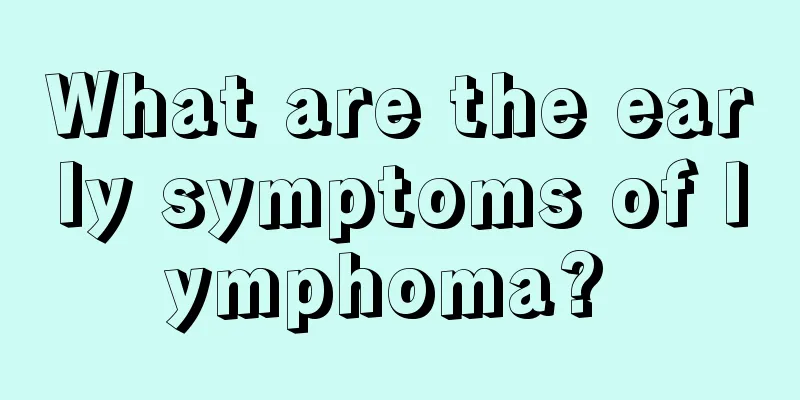What's with the light hiccups

|
Under normal circumstances, hiccups are not common, and there is no need to worry if you have hiccups. They will improve on their own after a while and will not have any effect on your body. But some people hiccup quite frequently. What is the reason for hiccups? If you suffer from chronic gastritis or reflux esophagitis, you are prone to hiccups. In other words, if hiccups occur too frequently, you should be alert to whether you have a disease. 1. What is light hiccups? 1. Hidden chronic diseases Chronic gastritis, reflux esophagitis and other diseases can cause frequent hiccups. Some patients have low stomach acid, which leads to excessive food residue and causes hiccups. Chronic gastritis caused by Helicobacter pylori infection can also cause hiccups, and these patients also need to try to reduce the number of hiccups. Because when they burp, some stomach acid and bile will enter the esophagus, thereby irritating the esophageal mucosa. In the long run, it may lead to esophageal cancer. In addition, obesity causes excessive pressure in the abdominal cavity and abdominal wall, which can also lead to hiccups. 2. Functional dyspepsia Hiccups are commonly known as "belching" and have many causes. Excessive gas and fluid accumulation in the gastrointestinal tract can cause hiccups through the peristalsis of the gastrointestinal tract. Hiccups after meals are generally caused by gas accumulation in the gastrointestinal tract. Hiccups can help expel excess gas from the body and are beneficial to the human body. If organic changes in the stomach and esophagus are ruled out, frequent hiccups are likely due to aerophagia, a functional indigestion. Such patients often feel that there is gas in their stomach and believe that burping can expel the gas and make their body feel more comfortable. But in fact, before each hiccup, the patient will subconsciously swallow a breath, and the swallowed air is more than the gas hiccuped, which can only result in more and more gas in the gastrointestinal tract. If this situation continues, you may develop liver syndrome and spleen syndrome. 3. Precursor of tumor lesions If you have frequent hiccups accompanied by other symptoms, you need to be careful. Frequent hiccups accompanied by periodic hunger pains and night pains may mean ulcers in the digestive tract or problems with the liver and gallbladder. If you have symptoms such as loss of appetite, weight loss, anemia, etc., and they last for more than 45 days, you must not take it lightly. It indicates the presence of tumors and other lesions in the body. 2. What to do if you keep hiccuping 1. Find our Neiguan point (located two fingers up from the base of the left palm), then press the Neiguan point hard with your right thumb to stop hiccups immediately. 2. Hold a mouthful of water in your mouth, and when you feel you are about to burp, lean forward and swallow the water (be careful not to choke yourself). 3. Take a deep breath. There is no need to say more about this. We relax our body, sit down and take deep breaths, continue taking deep breaths until the hiccups disappear, and then take a few more deep breaths. |
<<: What's wrong with only farting and no pooping
>>: The nose bleeding is finally cured
Recommend
Why is my neck swollen and uncomfortable?
Neck pain is very common, and this symptom is clo...
Clinical manifestations of prostate cancer recurrence
Currently, radical prostatectomy is one of the ma...
What is the reason for the pain in the left jaw
Because the chin is very close to the neck and mo...
What to do if blisters appear at the corners of mouth
What should people do if blisters appear at the c...
Is sandalwood mosquito coil poisonous?
I believe that for many friends, in the hot summe...
Good ways to prevent ovarian cancer
Ovarian cancer has no obvious symptoms in the ear...
How to treat breast cancer 2B
Breast cancer is a common malignant tumor in wome...
The most common early symptom of cervical cancer is increased vaginal discharge
Every woman may develop cervical cancer. Since ev...
Will cervical cancer kill you without chemotherapy?
When it comes to cancer, people usually associate...
What is the reaction to asarum poisoning
Asarum, also known as Asarum, is a very common Ch...
How to store and preserve eggs
Relatively speaking, the shelf life of eggs is sl...
Lycopene tablets
Lycopene tablets have lycopene as the main ingred...
What are the lactam drugs
When we have a cold or fever, doctors often presc...
What to do if you have acne
The fast-paced life and the lack of attention to ...
How to prevent recurrence of nasopharyngeal carcinoma patients after radiotherapy
Nasopharyngeal carcinoma is a malignant tumor dis...









